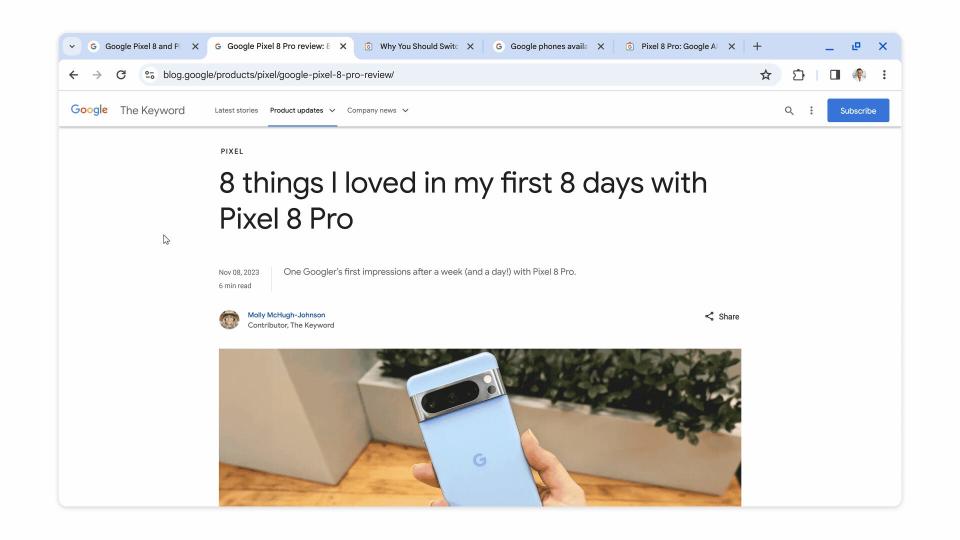Google Chrome's new AI feature can now organize your browser tabs
Google is rolling out an AI feature that can organize tabs on its web browser Chrome.
"Sometimes people feel overwhelmed manually" managing tabs, a Chrome product manager said.
The tab organizer is one of three new AI features that Google is bringing to its web browser.
Finding that article you looked at weeks ago among dozens of web browser tabs open in Google Chrome may soon get easier.
As of Tuesday, Google is rolling out an update of its web browser Chrome with added AI features, including one the tech giant says can automatically organize your open tabs into groups based on similarities. Starting in the US, the feature will be able to help people with tasks like planning vacations, research, and shopping, it said.
"Our users are always asking for better ways to manage their sometimes complex online workflows," Mark Chang, a product manager at Chrome, told Business Insider. "Tab groups have become a popular way to help people visually distinguish their tabs by topic or task in Chrome, but we discovered that sometimes people feel overwhelmed manually trying to organize 15-30 tabs."

To use the feature, right-click on a tab and press "Organize Similar Tabs." You can also click on the down arrow icon in the tab row's upper left corner. From there, select "Organize tabs," then click "Search for groups." Once that's selected, the AI should automatically create a tab group. Users can manually name the group or use Chrome's AI-suggested names and emojis.
The new feature is part of a slate of generative AI tools that Google will soon be rolling out across Chrome. In addition to the tab organizer, Chrome will launch a feature as early as this week to allow users to create their own browser themes for their homepage. Next month, it'll release a feature called "Help me write" that Google claims can generate web copy, such as an inquiry about an apartment rental or a restaurant review.
Google is pushing ahead with its strategy in an effort to get ahead in the AI wars. Last December, it unveiled Gemini, a large language model that rivals GPT-4, the AI model behind OpenAI's ChatGPT. A few months prior, Google launched an AI chatbot called Bard.
Chrome isn't the only web browser integrating AI tools, however. Microsoft Edge now includes access to the AI-powered Bing search engine, released last February, that can write poems and generate recipes.
Read the original article on Business Insider


